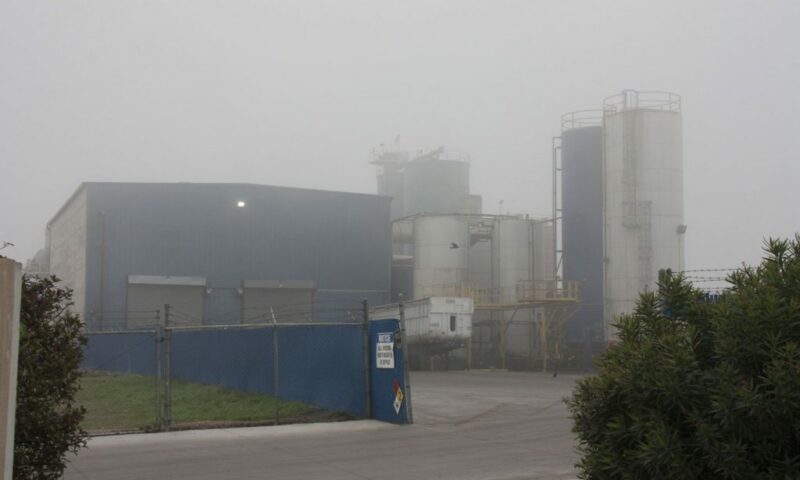

(Editor’s Note: This is an encore posting from our State of Inequality series.)
March 1, 2060
Dear Granddaughter,
Just the other day, you asked me two questions that I failed to answer. How did California get into the fix it’s in today? And, a half century ago, when I was writing regularly about our home state, did anyone see this future coming?
I must confess the real reason for my evasion was that your questions reminded me of a document from those days that I couldn’t immediately put my hands on. It took me a week but I finally found it on a very old laptop computer I still hang onto. (I know, I know, I’m a dinosaur!)
This artifact is dated 2010, and it’s a map of sorts — not of a city but of a future.


Last month former San Jose mayor Chuck Reed took the first step toward offering a promised draft of a 2016 public pension cutting initiative that, he has hinted, will target the California Public Employees’ Retirement System. CalPERS manages the retirement and health benefits for more than 1.6 million California public employees, retirees and their families. Reed tried to get a pension initiative on the ballot in 2014, only to withdraw the measure when state attorney general Kamala Harris assigned it a ballot description that Reed and his allies believed would hurt their chances with the electorate.
This time, however, Reed could find his campaign in danger from an unexpected source – conservative allies who might be worried that his initiative’s very presence on the ballot will draw huge numbers of liberal and union voters – who would then also vote against conservative candidates running for local and state office.
» Read more about: Pension Cutters' 2016 Ballot Obstacle: Voters »


As this series has made clear, “The California Chasm” is a challenge that threatens to transform the state into a shadow of its former self. Once a place where people came together to realize fortunes, remake their lives and attain their piece of the American Dream, we have become a state saddled with sharp differences in social, economic and health outcomes due to race, place and class.
This is an encore posting from our State of Inequality series
The resulting division is damaging to our sense of community but it also leaves the potential of our residents untapped. With research increasingly demonstrating that more equitable strategies can produce more sustainable growth, we need to create a conversation about how California can lead the nation not in inequality but in opportunity.
We have the know-how —
» Read more about: Twelve Ways to Reverse Inequality and Close the "California Chasm" »


 California is one of only seven states that pays tipped workers their state’s minimum wage instead of the penurious $2.13 (the federal minimum) to $5 range. California’s wait staff and other service workers collect a $9 hourly minimum—plus gratuities. Legislation will raise the state minimum wage to $10 hourly next year. But that won’t apply to tipped workers, if a proposed bill passes the California legislature and becomes law.
California is one of only seven states that pays tipped workers their state’s minimum wage instead of the penurious $2.13 (the federal minimum) to $5 range. California’s wait staff and other service workers collect a $9 hourly minimum—plus gratuities. Legislation will raise the state minimum wage to $10 hourly next year. But that won’t apply to tipped workers, if a proposed bill passes the California legislature and becomes law.
Assembly Bill 669 was sponsored by the California Restaurant Association (CRA) and introduced by Assemblyman Tom Daly (D-Anaheim). Daly’s bill would cap the minimum wage for California’s tipped workers at $9 if they earn a total of $15 hourly. Far more disturbing to low-income service employees, however, is a passage embedded in the bill that could undo local minimum wage ordinances previously approved by voters in Oakland, Richmond, San Francisco and San Jose.
Those measures would be overturned unless they “specifically reference” the Daly bill’s language – an unlikelihood,
» Read more about: Will a New California Bill Trump Minimum Wage Ordinances? »


One day late last year, retired police officer Robert Mitchell took several visitors on a tour of the West Fresno community where he has lived for decades. But it was hardly a nostalgia excursion.
This is an encore posting from our State of Inequality series
First, there was a stop at Hyde Park, a former dump. There was another at a sports complex and fishing pond built on a Superfund cleanup site. And still another at a controversial meat-rendering plant operated by Darling Ingredients Inc. that residents say has spewed foul smells into nearby residential areas for more than half a century.
“You constantly had the horrific odor of the processing that occurs here at Darling,” said Mitchell, a thoughtful man with a bushy white beard and deep voice. He and his visitors stood outside the Darling plant,
» Read more about: Hell’s ZIP Code: Clearing the Air in West Fresno »
[vc_row][vc_column][vc_raw_html]JTNDc3R5bGUlM0UuZW1iZWQtY29udGFpbmVyJTIwJTdCJTIwcG9zaXRpb24lM0ElMjByZWxhdGl2ZSUzQiUyMHBhZGRpbmctYm90dG9tJTNBJTIwNTYuMjUlMjUlM0IlMjBoZWlnaHQlM0ElMjAwJTNCJTIwb3ZlcmZsb3clM0ElMjBoaWRkZW4lM0IlMjBtYXgtd2lkdGglM0ElMjAxMDAlMjUlM0IlMjAlN0QlMjAuZW1iZWQtY29udGFpbmVyJTIwaWZyYW1lJTJDJTIwLmVtYmVkLWNvbnRhaW5lciUyMG9iamVjdCUyQyUyMC5lbWJlZC1jb250YWluZXIlMjBlbWJlZCUyMCU3QiUyMHBvc2l0aW9uJTNBJTIwYWJzb2x1dGUlM0IlMjB0b3AlM0ElMjAwJTNCJTIwbGVmdCUzQSUyMDAlM0IlMjB3aWR0aCUzQSUyMDEwMCUyNSUzQiUyMGhlaWdodCUzQSUyMDEwMCUyNSUzQiUyMCU3RCUzQyUyRnN0eWxlJTNFJTNDZGl2JTIwY2xhc3MlM0QlMjdlbWJlZC1jb250YWluZXIlMjclM0UlM0NpZnJhbWUlMjBzcmMlM0QlMjdodHRwcyUzQSUyRiUyRnd3dy55b3V0dWJlLmNvbSUyRmVtYmVkJTJGJTJGSkVvTmFFZlVSQzglMjclMjBmcmFtZWJvcmRlciUzRCUyNzAlMjclMjBhbGxvd2Z1bGxzY3JlZW4lM0UlM0MlMkZpZnJhbWUlM0UlM0MlMkZkaXYlM0U=[/vc_raw_html][/vc_column][/vc_row][vc_row][vc_column][vc_empty_space height=”35px”][/vc_column][/vc_row][vc_row][vc_column][vc_column_text]
Walking on the tiered layers of rebar at the Wilshire Grand Center construction site is a challenge, especially when wearing the heavy shoes required for safety. You have to watch every step, looking down to make sure that each foot is firm and the body balanced before moving forward. The rough edges of the rods are a brown, grey and rust color mix that blends through the 20-foot long steel. You see and feel the ordered coherence of an enduring structure.
There is a sense in which the ability to notice, rather than to merely look, is part of an artist’s skill. In his drawing classes, the 19th century British art critic and writer John Ruskin taught that noticing the environment around you in a more rigorous way was something that could be learned, a way of thoughtfully moving through the world that he believed need not be limited to the “cultured” and “educated.”
Ruskin (he is a featured character in the recent movie Mr.
» Read more about: Sefi Edery: A Portrait of the Artist as a Young Ironworker »
[vc_row][vc_column][vc_column_text]
Do failed policy proposals from public education officials enjoy an afterlife when their creators depart Washington for the private sector? This is no academic question. In fact, the career arcs of two former federal policymakers may well have foreshadowed the life-or-death clash over the accreditation of San Francisco City College (CCSF), one of California’s 112 community colleges. The state is home to about 10 percent of America’s 1,100 two-year colleges.
As San Francisco Superior Court Judge Curtis Karnow’s ruling on the Accrediting Commission for Community and Junior College’s bid to decertify CCSF draws near, the story of Margaret Spellings becomes instructive. Spellings, who was George W. Bush’s second-term Secretary of Education, commissioned a controversial 2006 report called “A Test of Leadership: Charting the Future of U.S. Higher Education.”
The report’s language was very much in tune with the pro-business Bush zeitgeist.


Unlike restaurant menus, community and democracy don’t work “à la carte.” We do not get to pick the laws we want to follow. The owners of Los Angeles’ trendy Golden Road Brewing seem not to understand this. As they champion one notion of “community,” they turn their backs on the actual people who compose the community.
In a recent L.A. Times piece on how a minimum wage increase will affect city businesses, Golden Road’s Tony Yanow (who also owns the Mohawk Bend and Tony’s Darts Away gastropubs) balked: “I love L.A., but that doesn’t mean it’s my best bet,” he told the Times. “Do you want to go somewhere where you can make money, or do you want to go somewhere where they’re stacking the cards against you?” He went on to engage in some not-very-subtle threat-making, noting that if L.A. increases its minimum wage, he may shift operations to neighboring,
I recently interviewed one of the country’s unabashed progressive leaders, New York Mayor Bill de Blasio. Our discussion ranged from Ronald Reagan’s legacy to the failures of contemporary Democrats to stand up for their values. “We have an income inequality crisis in this country that will endanger the future of the entire United States of America,” de Blasio told me. We present here the fourth in a series of clips from that interview. (Full transcript here.)
Danny is communications director at LAANE and the publisher of Capital and Main. He has led LAANE’s communications efforts for the past decade. He has attracted national media attention for numerous LAANE projects, including the successful effort to stop Wal-Mart from building a superstore in Inglewood and the drive to bring living wages to hotel workers in Santa Monica.
Read more articles by Danny Feingold
» Read more about: Watch Now: Bill de Blasio on Economic Inequality »


“He’s had some statements that to me sound kind of liberal, has taken me aback, has kind of surprised me,” (Sarah Palin on Pope Francis)
“He acts so holy. He made love to every girl in every city in America and he had AIDS. And when he had those AIDS, I went to my synagogue and I prayed for him. I hoped he could live and be well. I didn’t criticize him. I could have.” (Donald Sterling on Magic Johnson)
“Everybody who wants to steal your guns is funded by the unions. Everybody who wants to raise your taxes is funded by the unions. Everybody who wants to borrow too much money is funded by the unions. Whatever center-right issue you care about, the unions are on the other team.” (Grover Norquist)
“The guy who wins the Oscar for Best Actor has a much higher bar to clear than the woman who wins best actress.” (Writer-producer Aaron Sorkin)
“They abort their young children,